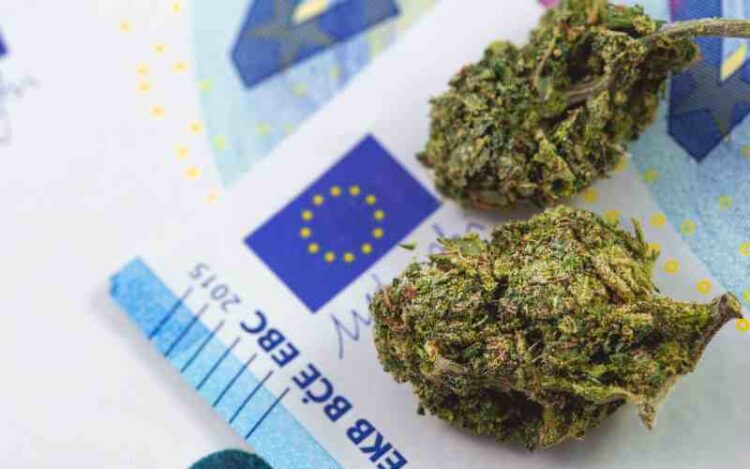The report by the European Centre for Drugs and Drug Monitoring (EMCDDA), named “Cannabis—The present circumstances in Europe (European Drug Report 2023)”, defines cannabis as the “most frequently used illegal substance in Europe”.
The report references national studies demonstrating that 8% of European adults, equating to approximately 22.6 million individuals aged between 15 and 64, have consumed cannabis in the past year. Roughly 1.3% of adults, about 3.7 million people, are characterized as daily or nearly daily users.
The document highlights the increasing acceptance of cannabis, which often results in user issues. The report asserts, “However, there is still a necessity to further comprehend the types of issues that cannabis users encounter, as well as the methods of referral and treatment options accessible to those suffering from cannabis-related issues.”
Additionally, the report suggests that in the 2021 European Web Survey on Drugs, 95% of participants who used cannabis in the past year, 32% chose “resin,” 25% opted for edibles, and 17% favored extracts. In the European Union (EU), tested resin contained 20% THC, while flower had 9.5% THC.
The EMCDDA reveals that 97,000 individuals enrolled in drug treatment programs for “issues associated with cannabis use” in 2021, with 55,000 of those individuals entering for the first time.
Furthermore, in 2021, the number of seizures of cannabis products reached its peak in over a decade. The report identifies Spain as the nation with the highest percentage of cannabis product seizures, at 66%.
In 2021, the EU reportedly confiscated over 202,000 cannabis resin products (equivalent to 816 tonnes, or 1,798,972 pounds). Seizures of cannabis flowers were recorded at 256 tonnes (or 564,383 pounds). In Turkey alone, 9,800 seizures of cannabis resin products resulted in 33 tonnes (or 72,752 pounds) and 31 tonnes (or 68,343 pounds) of cannabis flowers.
The EMCDDA states, “The variety of cannabis products available in Europe is growing. This is applicable both to the illegal drug market and consumer markets, with products appearing that contain low levels of THC and other substances derived from the cannabis plant such as CBD. In the illegal drug market, the availability of high-potency extracts and edibles is particularly worrying and has been associated with acute toxicity presentations in hospital emergency departments.”
The document also raised alarms over the synthetic cannabinoid hexahydrocannabinol, recently available in certain EU nations.
The EU consists of 27 nations, some of which have implemented medical or recreational cannabis legalization to counter the illicit market.
In December 2021, Malta became the first EU country to authorize recreational cannabis. Malta’s regulatory framework for possession, cultivation, and sales allows residents to hold seven grams of cannabis in public (or up to 50 grams at their private residence), as well as cultivate up to four plants at home.
More recently, German officials have been tirelessly crafting a regulatory framework for cannabis legalization. In April 2023, the latest draft proposes the establishment of state-regulated non-profit social clubs. If approved, it would permit residents who are at least 18 years of age to purchase up to 25 grams of cannabis daily (or up to 50 grams monthly). Those aged between 18 and 21 years would be restricted to a maximum of 30 grams per month.
Other EU nations, including Luxembourg, Czech Republic, and the Netherlands, are currently devising their own legalization plans.
Switzerland, meanwhile, is conducting several cannabis research pilot programs in specific regions of the country. The SCRIPT study, led by the University of Bern, does not legalize cannabis but is designed to investigate the “health and social effects” of regulated cannabis from local pharmacies. “Our study doesn’t aim to legalize cannabis in a free market, but to address the issues caused by prohibition and the black market and to test potential harm reduction approaches, as well as a strict control of supply and distribution use demand for cannabis,” stated head of SCRIPT researcher Reto Auer.









